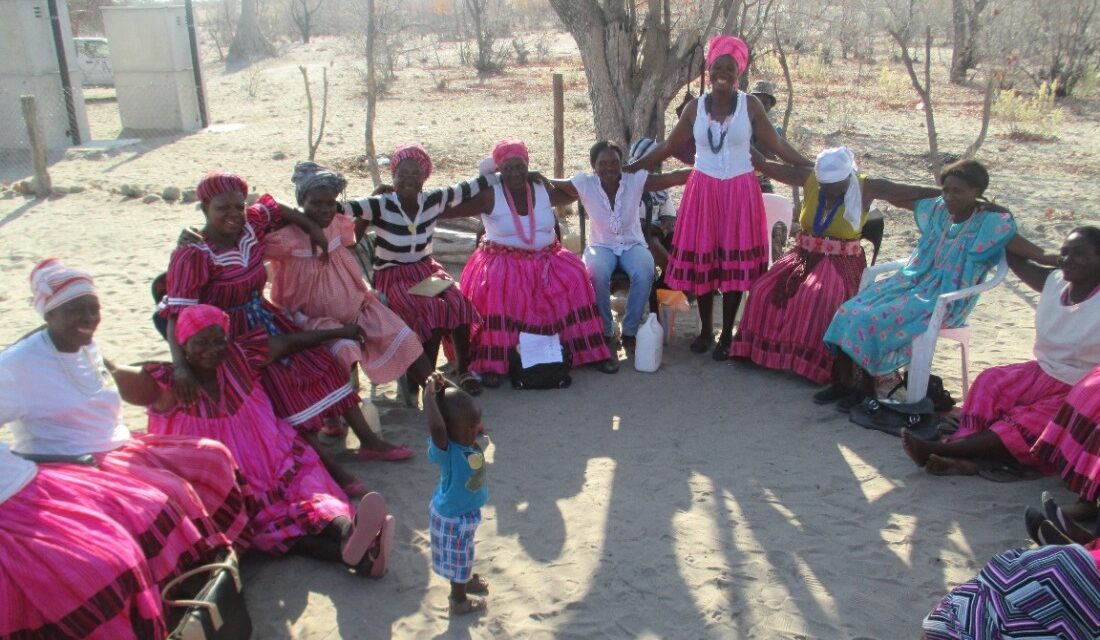ACTION 12: DIALOGUE ON FINANCIAL INCLUSION

A Savings with Education group in Namibia meets in a circle for prayer and reflection.
Faith
But she said, “As the Lord your God lives, I have nothing baked, only a handful of meal in a jar, and a little oil in a jug: I am now gathering a couple of sticks, so that I may go home and prepare it for myself and my son, that we may eat it, and die.”
1 Kings 17:12
Fact Sheet
- Women around the world are responsible for 75% of all unpaid work.[1]
- Between 1995 and 2015, the global female labor-force participation rate decreased from 52.4% to 49.6%. The corresponding figures for men are 79.9% and 76.1%, respectively. Worldwide, the chances for women to participate in the labor market remain almost 27 percentage points lower than those for men.[2]
Reflection and Action
In 2019, the Center for Women’s Global Leadership dedicated its toolkit for the 16 Days of Activism to raising awareness of the International Labor Organization Convention on Violence and Harassment adopted that year. Violence and harassment in the world of work is a global phenomenon that disproportionately and uniquely affects women, prohibiting them from fully realizing their human rights. This abuse contributes to social and economic inequality, creates vulnerability and perpetuates exploitation and precarious working conditions for millions based on gender and other intersecting identities.
Gendered barriers to women’s integration into the workplace combine with barriers to women’s financial inclusion in accessing banking services and exacerbate the feminization of poverty. Data show that, when women have more financial earning power and the ability to decide how finances are managed, they bring positive economic change to the lives of their children, families and communities.
Episcopal Relief & Development’s programs encourage women to participate in financial decisions and to earn an income so they can provide food and health care for their families, as well as educate their children. Women participate in Savings with Education (SwE) groups, which offer critical financial and business training as well as provide small-business loans to individuals and groups. SwE groups develop micro-insurance products, village banks and cooperatives for people without access to traditional financial markets and institutions.
Read about the SwE program in Angola to learn more about the impact it has on women’s financial health and well-being and watch Josephine Hicks, Episcopal Relief & Development vice president for Episcopal Church Programs, speak about community empowerment and SwE here.
Footnotes
[1] https://16dayscampaign.org/wp-content/uploads/2019/10/2019-Global-16Days-Campaign-Guide-Final.pdf
[2] https://www.ilo.org/wcmsp5/groups/public/—dgreports/—dcomm/—publ/documents/publication/wcms_457317.pdf


